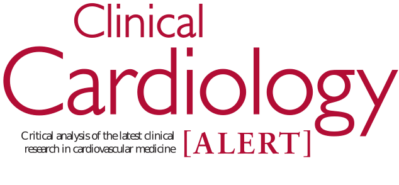
Clinical Cardiology Alert – May 1, 2023
May 1, 2023
View Issues
-
Clip Found to Be Safe and Effective for Alleviating Tricuspid Regurgitation
In this randomized trial of tricuspid transcatheter edge-to-edge repair, the intervention was found to be safe and effective at alleviating tricuspid regurgitation. Quality of life scores improved with intervention compared with medical therapy, although death and heart failure hospitalization rates were not significantly different.
-
Improving Statin Tolerance in Elderly Patients
In a post-hoc analysis of the RACING trial, researchers found the combination of moderate-intensity statin and ezetimibe therapy vs. high-intensity statin therapy alone in older subjects resulted in similar reductions in cardiovascular events over three years, but fewer adverse effects with the combination therapy.
-
The Best Use of Statins in Patients with Coronary Artery Disease
A randomized, multicenter study of high-intensity statin therapy to a treat-to-target approach in coronary artery disease patients showed no difference in three-year outcomes. These results suggest treating to a target may be more suitable to individual patients compared to blanket high-intensity statin use.
-
Cardiovascular Outcomes with Bempedoic Acid, a New Statin Alternative
A trial of bempedoic acid vs. placebo for statin-intolerant patients showed bempedoic acid significantly lowered LDL cholesterol levels and prevented more major adverse cardiovascular events after a median follow-up of 41 months. Although nonserious side effects were numerically higher for those on bempedoic acid, serious adverse events were not significantly different from placebo.
-
An Oral PCSK9 Inhibitor — Coming Soon?
A Phase IIb study of four doses of MK-0616, an orally administered PCSK9 inhibitor, compared to placebo showed significant reductions in LDL cholesterol levels without any differences in adverse effects over eight weeks.
